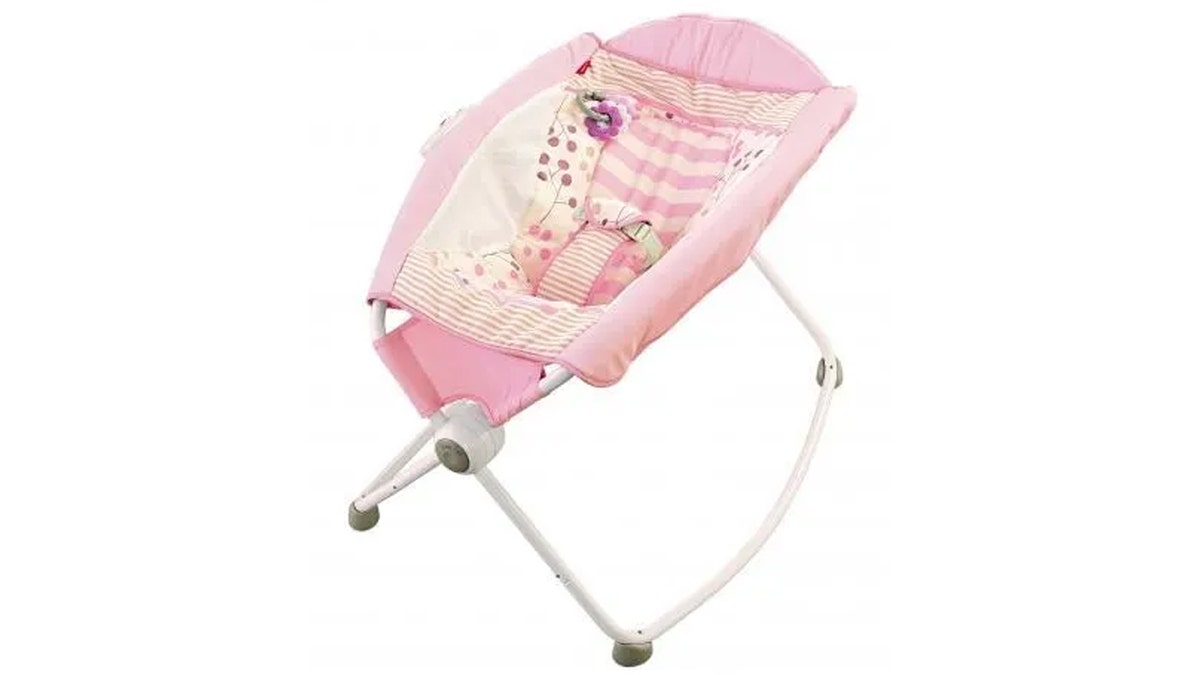
The U.S. Consumer Product Safety Commission (CPSC) officially recalled 4.7 million Fisher-Price “Rock 'n Play Sleepers” Tuesday after reports of at least 30 infant deaths related to using the product. (CPSC)
The U.S. Consumer Product Safety Commission (CPSC) officially recalled 4.7 million Fisher-Price “Rock 'n Play Sleepers” Friday because of reports of infant deaths.
According to the recall notice, since the product was released in 2009, more than 30 babies have died because of the sleeper, either after they rolled over while unrestrained or in other circumstances.
The CPSC warns consumers should stop using the “Rock n’ Play Sleepers” immediately and return them to Fisher-Price for a refund or voucher.
Fisher-Price had previously issued a warning about the product last week, saying that 10 babies had died while using it since 2015. The company said that children older than 3 months who have learned how to roll over should not use the “Rock 'N Play.”
However, on Tuesday the American Academy of Pediatrics (AAP) demanded the sleepers be recalled, citing Consumer Reports’ analysis that recorded 32 infant deaths involving the product between 2011 and 2018.
The AAP’s statement also said Consumer Reports recorded deaths involving infants younger than three months, “which is alarming.”
“AAP urges parents to stop using the product immediately,” the statement said. “Stores should remove the ‘Rock ‘N Play Sleeper’ from their shelves. A warning issued by the CPSC and Fisher-Price on April 5 did not go far enough to ensure safety and protect infants.”
FISHER-PRICE ISSUES WARNING ABOUT 'ROCK 'N PLAY SLEEPER' AFTER 10 INFANT DEATHS
The product is advertised as a place for infants to nap or sleep and includes a vibration setting for comfort. In its initial statement, Fisher-Price said the product “meets all applicable safety standards, including those of the international standards organization, known as ASTM International, and is certified by the Juvenile Products Manufacturing Association (JPMA).”
But AAP’s chair of the Task Force on Sudden Infant Death Syndrom (SIDS) said the product fails to meet the group’s recommendations for a “safe sleep environment.”
“Infants should always sleep on their back, on a separate, flat and firm sleep surface without any bumpers or bedding,” Rachel Moon, MD, FAAP, said in a statement.
The AAP does not recommend any sleeping products for infants or any products that require restraining a baby. It also advises against using car seats, strollers or other devices for sleeping due to the risk of rollover leading to possible suffocation or strangulation.
Fox News' Alexandria Hein and Anna Hopkins contributed to this report.








































